Keeping your newsletter fresh and engaging is key to building loyal readers. Here are practical ideas with quick examples to help you create emails people actually want to open.
1. Weekly Industry Highlights
Summarize the most important updates from your industry every week. It saves your readers time and positions you as a go-to source.
Here is an example of Hello, World! newsletter's weekly tech roundup, made in such a way that looks engaging, fun to read and force the readers to click on it.
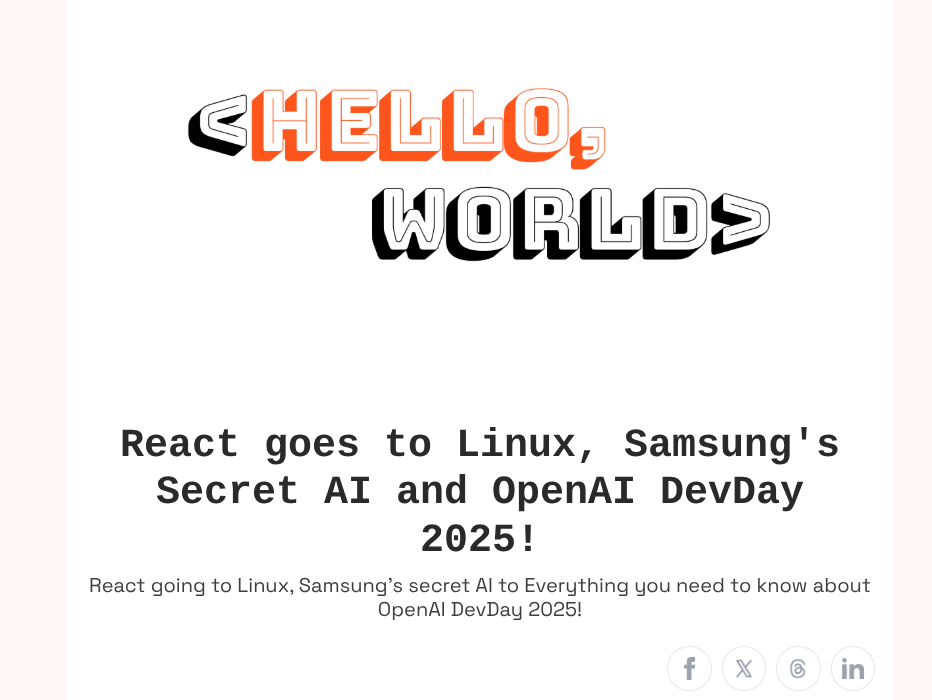
Checkout the full article: https://hw.glich.co/p/openai-devday-2025-highlights
2. Blog Posts
If you’ve recently published a new blog post, share it with your subscribers or create a mini roundup of your top three posts from the month, adding a short summary for each to explain why it’s worth reading. You can also reshare older posts that are still relevant or trending, giving timeless content a chance to reach new readers and keep your audience engaged.
Example: A weekly email for the latest blog that has been published.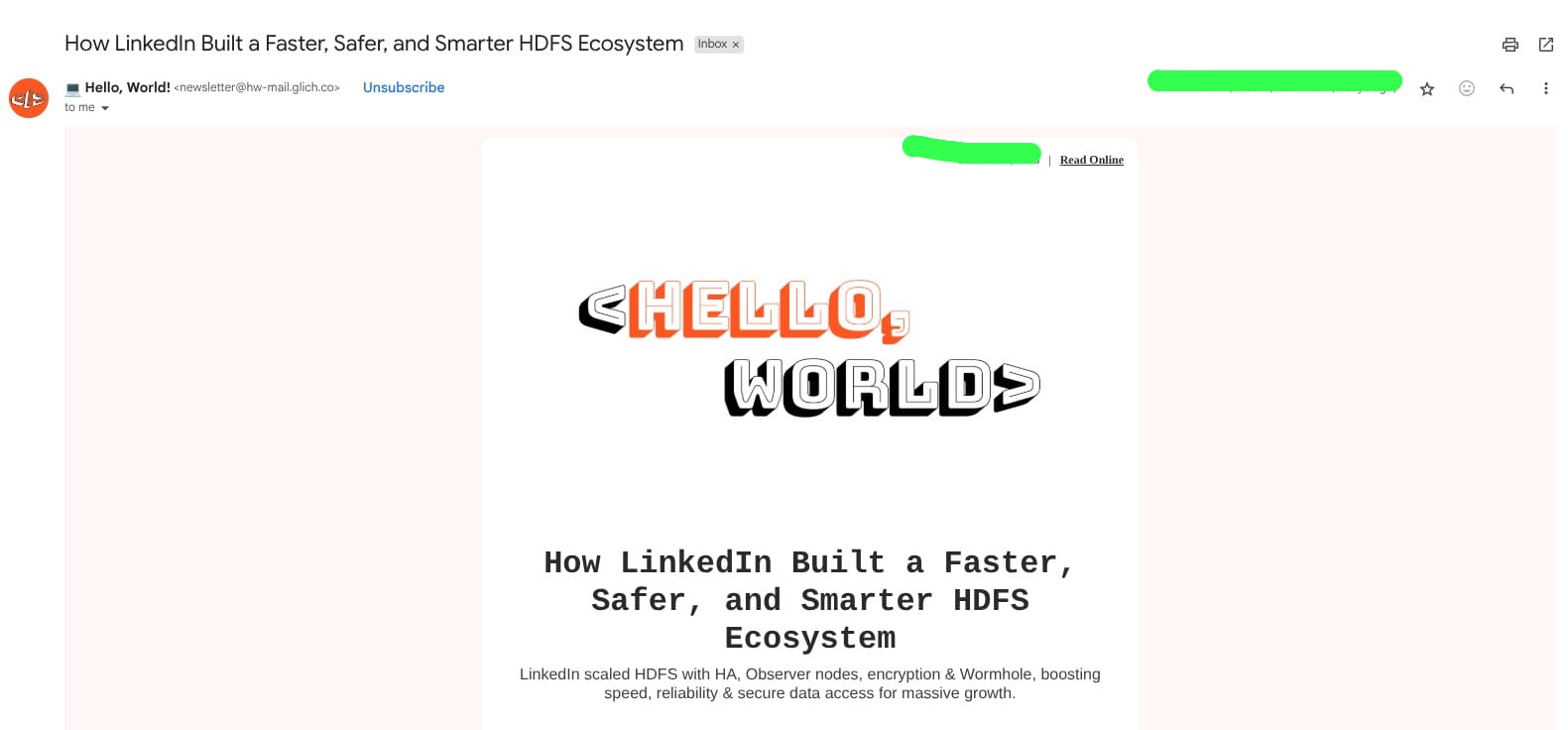
Checkout the full article: https://hw.glich.co/p/how-linkedin-built-a-faster-safer-and-smarter-hdfs-ecosystem
3. Ask for Feedback
Make your readers feel heard by asking their opinions. It’s one of the most effective ways to build a sense of community and show that you genuinely care about their thoughts. When readers feel that their voices matter, they’re far more likely to stay engaged and loyal.
Example: Mailsuit user feedback email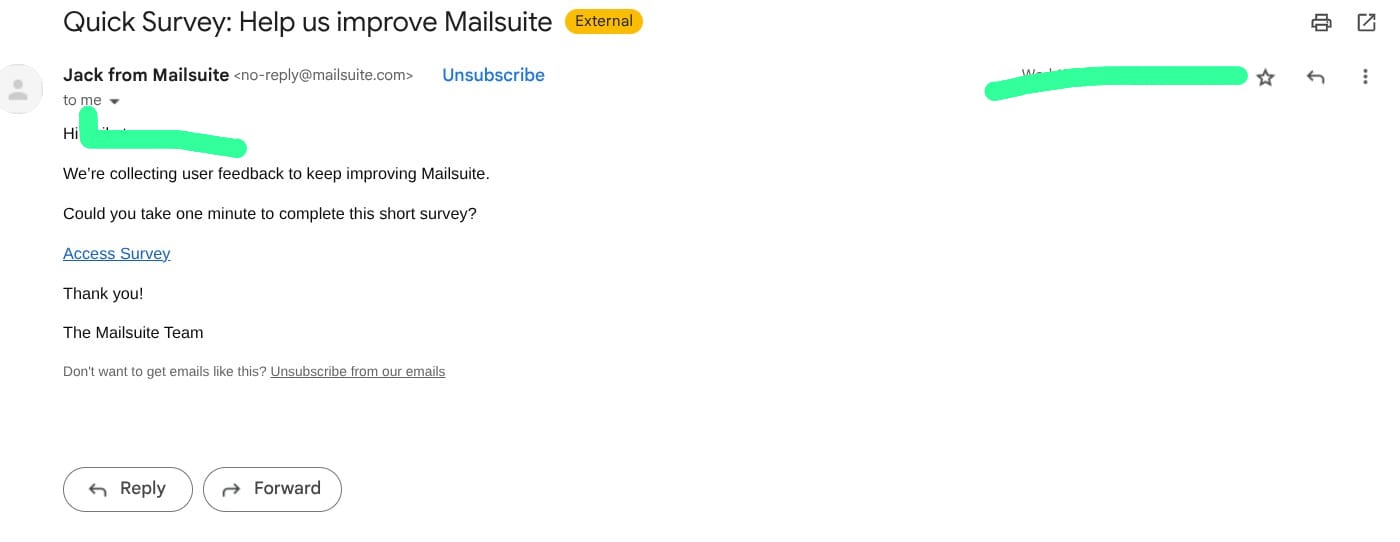
4. Product of the Week or New Arrivals
Instead of showcasing every new item or update at once, focus on just one product, feature, or offering per email. This keeps your message clear, visually appealing, and far more engaging for readers. When there’s only one focal point, your audience knows exactly where to look and what action to take.
Use this section to tell a story around your chosen highlight: why it’s exciting, how it helps your customers, or what inspired its creation. A single spotlight gives you room to include richer visuals, testimonials, or even short demo clips without overwhelming the layout.
Example: roadmaps.io new launch email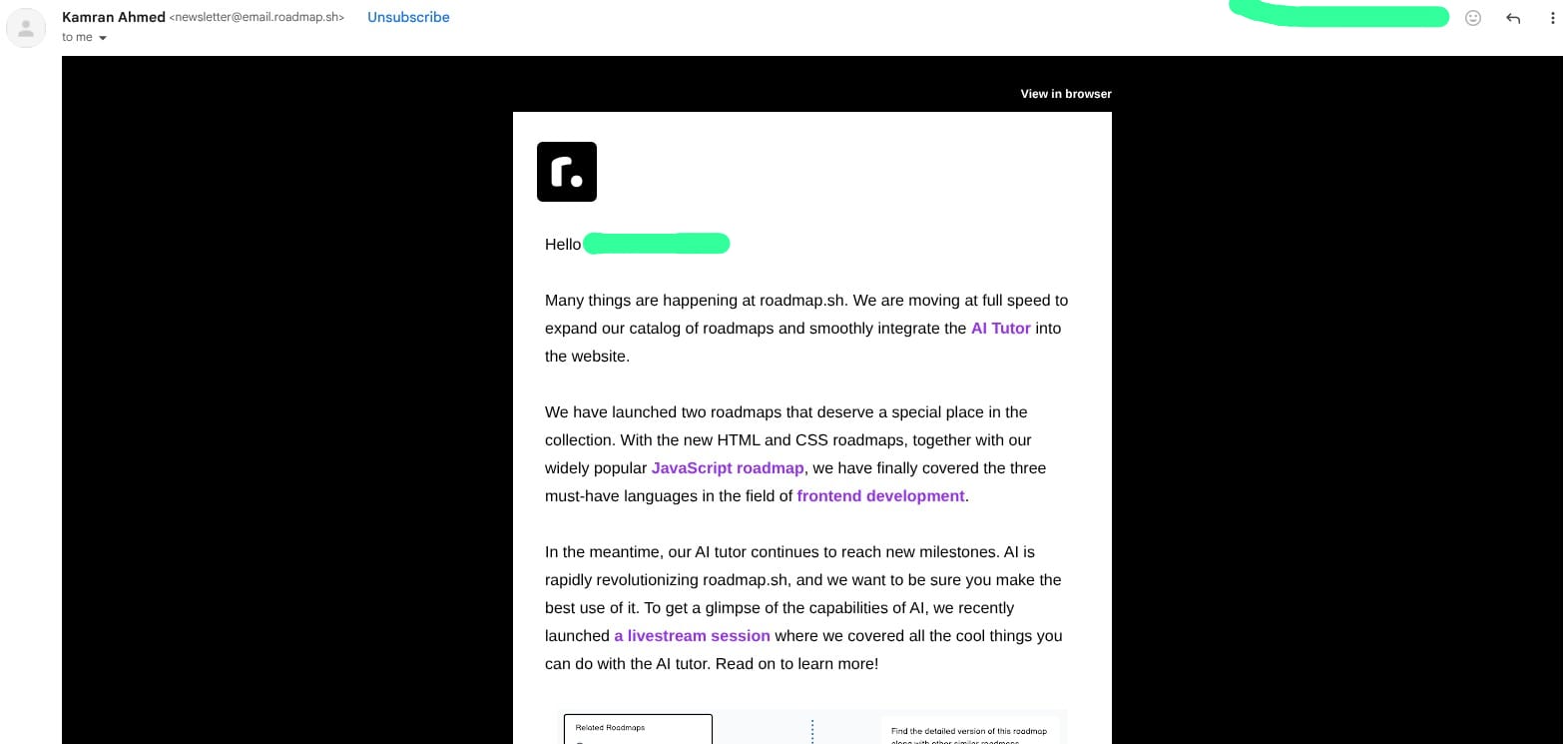
5. Upcoming Events
Keep your audience in the loop about what’s coming next whether it’s a webinar, product launch, workshop, or community meetup. Sharing upcoming events not only keeps readers informed but also helps them feel like they’re part of something bigger.
Use this section to build excitement and anticipation. Include a short description of what the event is about, who it’s for, and what participants will gain by joining. You can also add engaging touches like countdowns, teaser images, or early-access registration links to drive participation.
Example: beehiiv Winter Release Event email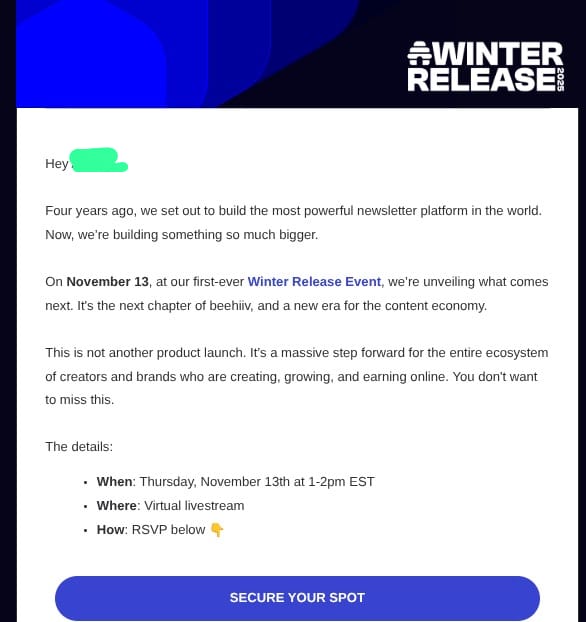
6. Curate Content from Other Blogs
Not every piece of valuable content has to come from you. By curating high-quality articles, reports, or insights from trusted sources, you position your newsletter as a go-to hub for the best ideas in your niche. This approach not only adds value but also saves your readers time by gathering relevant information in one place.
Think of it as being your audience’s personal editor, someone who filters through the noise and surfaces what truly matters. Each week, you can highlight a few standout reads, tools, or resources that align with your readers interests.
Example: “This week’s must-reads: a UX study from Nielsen Norman Group, and a smart take on AI design ethics from Smashing Magazine.”
7. Make Your Newsletter Funny
A bit of humor goes a long way in making your newsletter feel human and memorable. People are bombarded with serious, sales-heavy emails every day so a lighthearted tone or a clever joke can instantly set yours apart.
Just make sure your humor aligns with your brand voice and audience. What works for a design community might not fit a fintech audience. Keep it genuine and tasteful, and you’ll strike the perfect balance between informative and entertaining.
Example: beehiiv funny email title of a blog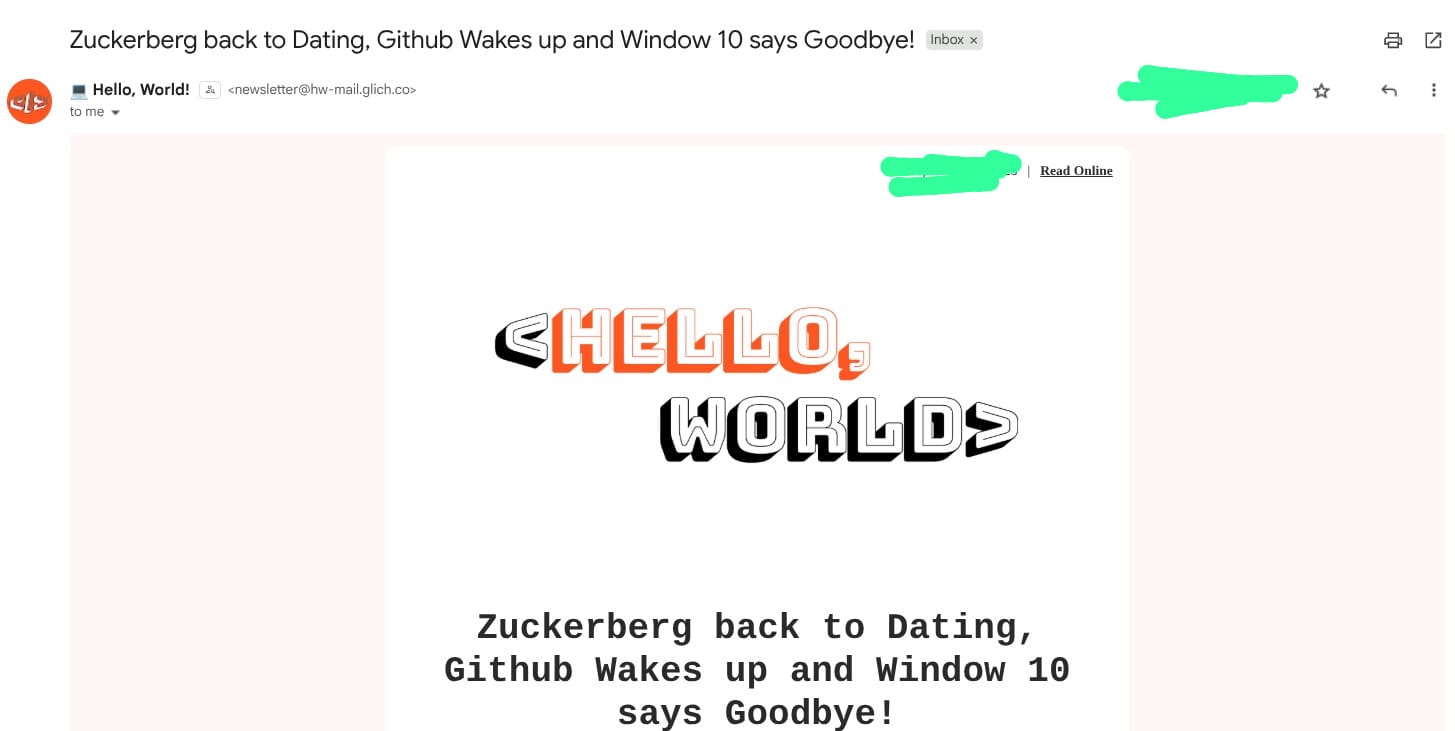
8. Leverage Video Content
Videos instantly grab attention and make your newsletter feel more dynamic. They help put a face (and voice) to your brand, making your message more personal and engaging. Example: Add a short 30-second clip of your team explaining a new feature, sharing quick tips, or celebrating a small win instead of using long text blocks.
9. Share Personal Stories or Lessons Learned
Authenticity builds trust. When you share real experiences both wins and mistakes your readers connect with you on a deeper level. Use your stories to teach, inspire, or spark reflection.
Example: “We launched our first campaign and failed here’s what we learned about testing before spending.”
10. Share Open Positions for Hire
Your subscribers already understand and value your brand, making them great potential hires or referrers. Include open roles occasionally to grow your team organically.
Example: “We’re hiring a Content Strategist! Know someone who loves storytelling and analytics? Send them our way.”
11. Special Offers and Discounts
Reward your loyal readers with exclusive perks or limited-time deals they can’t find anywhere else. It’s a great way to show appreciation and keep your audience excited about staying subscribed. Even small gestures like early access, bonus content, or a unique discount code can make readers feel valued and connected to your brand.
Example: codecademy discount offer email.
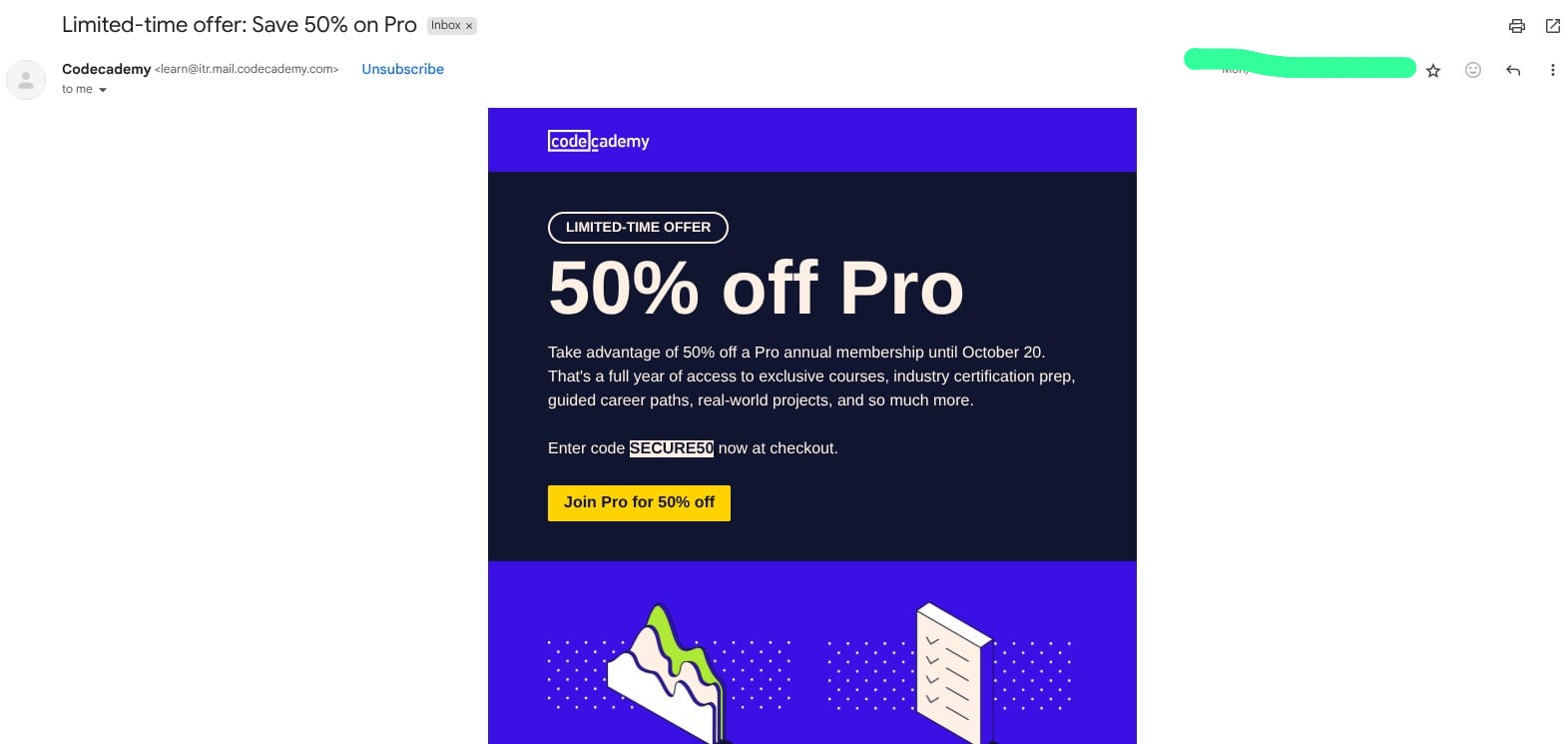
12. Behind-the-Scenes Content
Give readers a peek into what happens behind the curtain whether it’s your team at work, your creative process, or the story behind a new product. This kind of content humanizes your brand and builds a stronger emotional connection with your audience. People love seeing the real faces, challenges, and moments that make your brand what it is.
Example: “Here’s a peek at how our design team brainstorms new packaging ideas (plus a few doodles that didn’t make the cut).”
13. A Message from the CEO, Owner, or President
A personal note from leadership helps build trust and a sense of connection with your audience. It shows that the people behind the brand are approachable, accountable, and engaged with their community.
These messages can highlight company updates, share insights, reflect on lessons learned, or simply express gratitude to readers. Even a short, genuine note goes a long way in humanizing your brand and making your newsletter feel more personal.
Example: Email directly from the founder of beehiiv.

14. Share Your Favorite Books, Movies, or Songs
Give readers a glimpse of what inspires your team, it makes your brand relatable.
Example: “Our October picks: ‘Atomic Habits’ for focus, ‘The Social Network’ for motivation, and ‘Don’t Stop Believin’ on repeat.”
15. Holiday Greetings
Celebrate occasions and spread positivity without being overly promotional.
Example: Holiday greetings email from Pulse Labs.
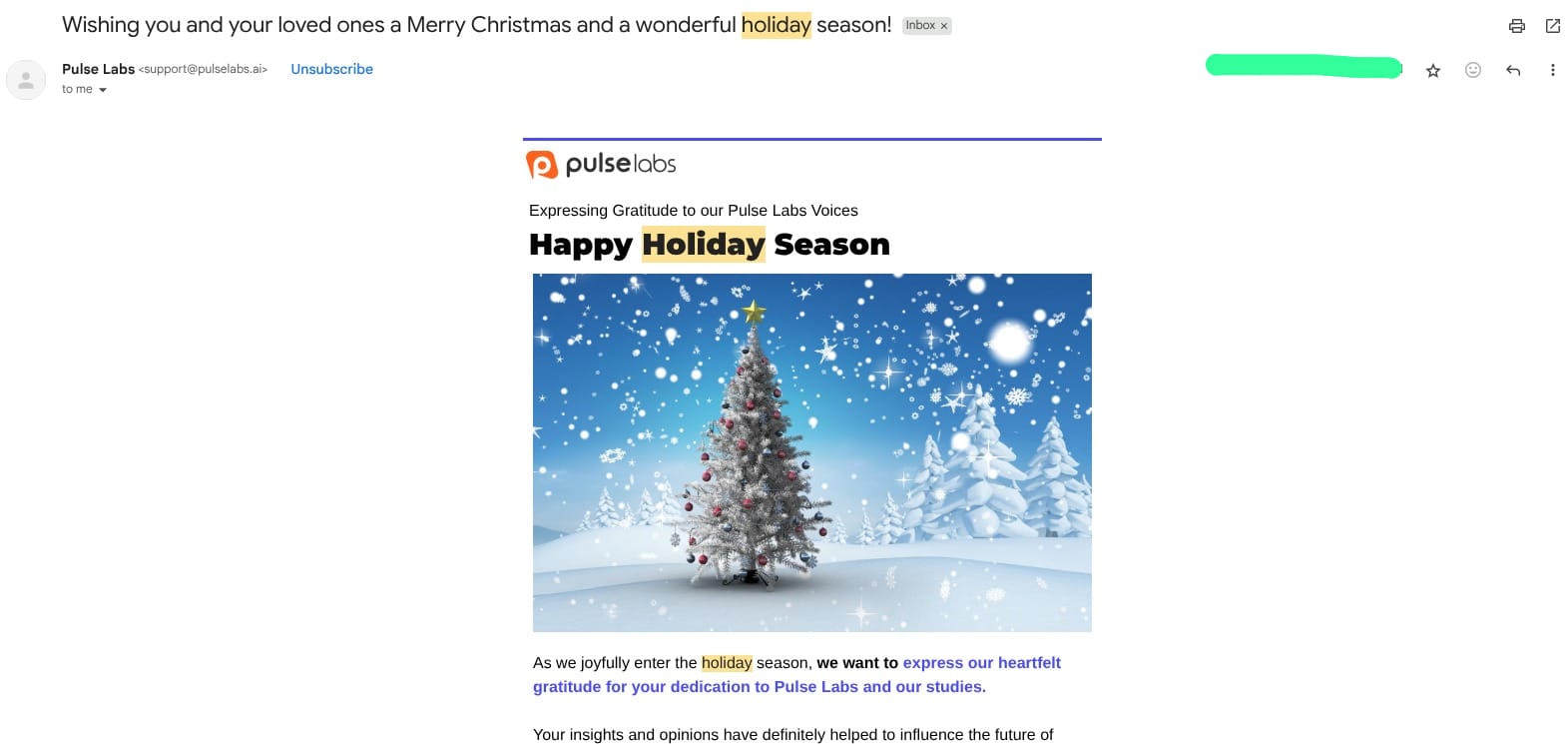
16. Customer Stories and Testimonials
Sharing real experiences from your users or clients builds credibility and trust. When readers see how your product or service has positively impacted someone like them, it makes your offering more tangible and relatable.
Example: “Meet Priya she used our app to grow her Etsy shop by 40%. Here’s her 2-minute story.”
Final Thoughts
A great newsletter is more than just updates, it’s a chance to connect, engage, and build trust with your audience. By mixing valuable content, personal stories, and interactive elements, you can create emails that readers actually look forward to opening. Keep experimenting, stay authentic, and focus on making each issue meaningful.